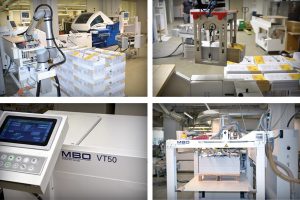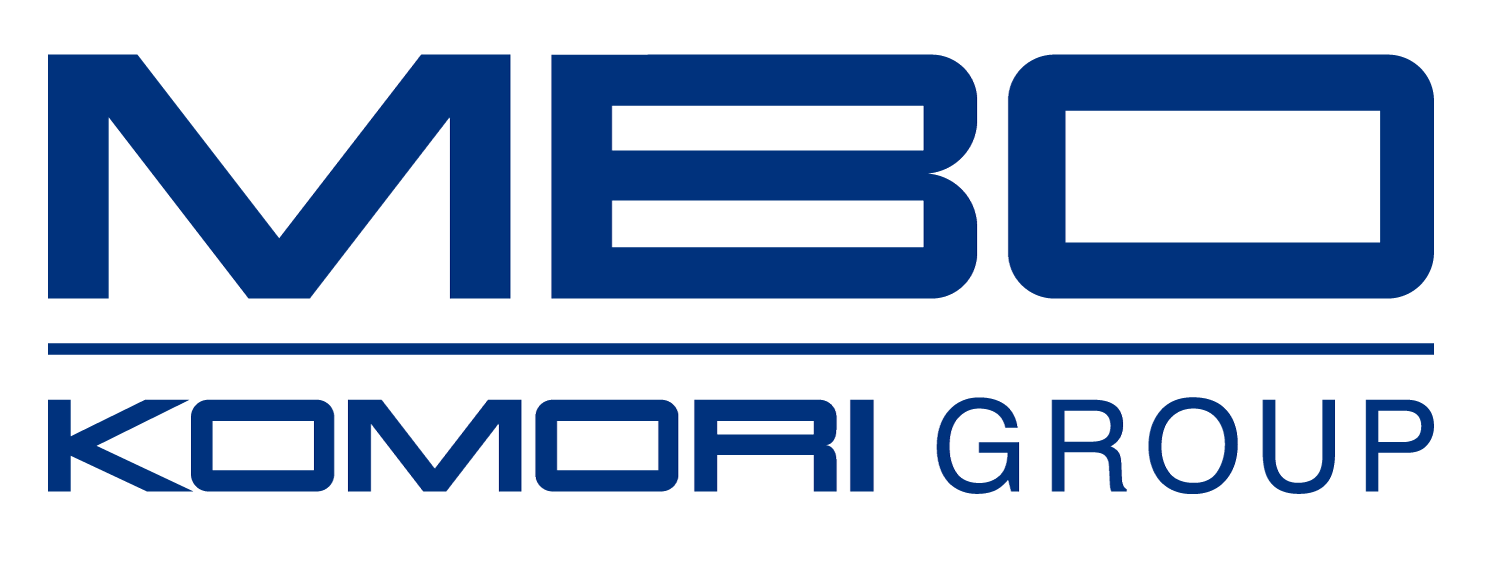Printing Shop Kohlhammer: A Bit Unusual

Definitely beyond the standard: When Stuttgart printing shop Kohlhammer presented its “wish list” for the new folding plant, it quickly became clear to manufacturer MBO that this was no everyday project.
It began with a vision. Steffen Franzisi, CEO of Stuttgart printing company Kohlhammer, had called a meeting of his team for a brainstorming session on the ideal workflow of the future in the area of folding. The consensus was that a completely redesigned folding plant was needed – high-performance and highly automated in order to achieve maximum throughput with as few personnel as possible. This was the top priority. Other requirements: No limits on thinking, just experience, know-how and plenty of creativity.
“It’s not that we don’t want to hire staff,” says Steffen Franzisi, explaining the company’s approach. “It’s just that there are no qualified workers available on the free market,” he states, adding that this shortage of skilled professionals is a real problem and becoming continually worse. Despite the fact that sufficient apprenticeships are available, Franzisi says, it is virtually impossible to meet the demand, even in the short term. “Every year, we offer young people the chance to learn a trade with us, but at most, we receive one application for three vacancies.”
Dream and reality
The list produced in the course of these meetings was not one with which you could simply go out and buy a few new machines “off the peg,” so to speak. Instead, Kohlhammer took its idea to the respective manufacturers to find out what was on offer on the market. “We put all our ideas down on paper,” states Franzisi. “And admittedly, some of them were a little unusual.”
Bodo Tegtmeier, Technical Sales Manager and International Key Account Manager at MBO in Oppenweiler, agrees. “At first, we were thinking in terms of our standard range, but we quickly realized that this was no standard project,” he says. “Of course, we did already have some ideas on the subject of automation which we had planned to present at the Drupa fair. However, with the start of the first lockdown, we put our development projects on ice.”
And then, out of the blue, Kohlhammer approached us with quite concrete ideas: “We were able to meet some requirements with products already in our range, some were ideas we had planned to realize anyway, but there were a few things on their list which we hadn’t even discussed before,” states Tegtmeier. For example, the option of operating the machines via tablet. The aim was to have the machines run autonomously for a quite extended period of time without an operator standing next to them. With a tablet computer, the operator can perform other tasks, but can still react immediately if there is a malfunction, without having to go to the machine. “It really works, and has already proved its worth in practice,” confirms Özkan Meral, Technical Manager at Kohlhammer Druck.
A further item on Kohlhammer’s wish list was voice control of the folding machine. “Sort of like ‘MBO, fold me a 16-pager,” Meral jokes. “But in the end, that was too tricky,” Tegtmeier admits. “It’s just too loud in the folding area.”
The only one of its kind worldwide
But even though voice control is not (yet) possible, Kohlhammer and MBO agree that the present folding plant, with the degree of automation realised so far, is absolutely unique. The machines produce autonomously, from the feeder to the depositing of the folded signatures on the pallet, as a completely automated finishing line. The highlight: signature change and quality control are also fully automatic.
The core of the production line comprises three new folding machines of type K8 in the Super-KTL configuration, each equipped with the A80 delivery, a KT90 R Advanced curve table and a CoBo-Stack collaborative robot which places the signatures on the pallet.
Completely new to the system – and unique to the Kohlhammer solution – is the Autopilot, which allows the machine to carry out a job change fully autonomously. The Autopilot works with a camera at the palletized feeder, which reads a QR code printed on each sheet and processes the information from the MBO Datamanager in combination with the MIS. Each print job and each signature has its own code. If the code changes, production is briefly interrupted. The machine sets itself up automatically. The A80 delivery system is also informed of the change by the Autopilot and automatically places the new signature on a new pallet using the CoBo-Stack.
Another new development is the VT50 automatic folding quality control, which takes place directly after the folding machine. To do this, two cameras measure the folding tolerances of the folded sheets. These tolerances can be set by the customer to fit the specific job. Incorrectly folded sheets or sheets outside the preset tolerances are ejected. This ensures that only perfectly folded sheets are transferred to the delivery system.
Folding 4.0
Of course, there is far more to realizing end-to-end automation of this kind than simply installing the corresponding hardware. One of the major challenges is the communication between the corresponding software and the already existing systems.
At Kohlhammer, the MBO Datamanager now has to work together with two higher-level systems – the MIS from Printplus and the Prinect workflow software from Heidelberg. “We get the respective job data from Printplus and the real folding data from Prinect,“ explains Bodo Tegtmeier. “In other words, the machine loads not raw pre-settings, but the real data from the pre-press stage.”
“That takes us quite a way towards Industry 4.0,” Özkan Meral confirms. “The CoBo-Stack now automatically also receives all parameters and even detects how many positive sheets land on the pallet in the end. It then automatically forwards the quantity to the ERP system.” A great advantage, because on one hand, the operator no longer needs to handle the figures, while on the other, you can find out at the folding machine if the requirements for the print run were not met – rather than later, when the perfect binder has already been set up.
Steffen Franzisi also emphasizes that “from the start, continuous communication right through to the robot was important for us,” and praises the way MBO handled his company’s wish list. “We are a little different from the rest,” he says. He states that MBO was always open and responsive to the ideas put forward by Kohlhammer, which is known for occasionally demanding the impossible from its suppliers.
Kohlhammer’s expectations were met. In fact, they were exceeded. The company prints approximately 500 signatures a month on each of its three Heidelberg XL printing presses, and they all need to be folded – using existing personnel. “Only yesterday, one person was operating three folding machines,” Franzisi reports with satisfaction, adding that the problem of a bottleneck in the folding plant had been completely resolved. “We hoped that would happen, but we didn’t really expect it.”
“Such a complex development is only possible in the right kind of partnership,” says MBO CEO Thomas Heininger. “Out task as a supplier was to digitalize the processes in such a way that they fit the company’s needs and allow it to generate the corresponding added value. And Kohlhammer is well on the way to doing that.”
Information on Kohlhammer
Kohlhammer Druck, based in Stuttgart, has around 130 employees and produces magazines, books, catalogues, booklets and much more. The company’s spectrum ranges from the pre-press stage, complete with repro, typesetting and data management, to digital printing (web and sheet), offset printing with three XL printing presses, a fully equipped print processing system, right through to logistics and dispatch.
The original article was published in “Deutscher Drucker” of 9/16/2021, issue 11, on pages 26-27. Author: Martina Reinhardt.
